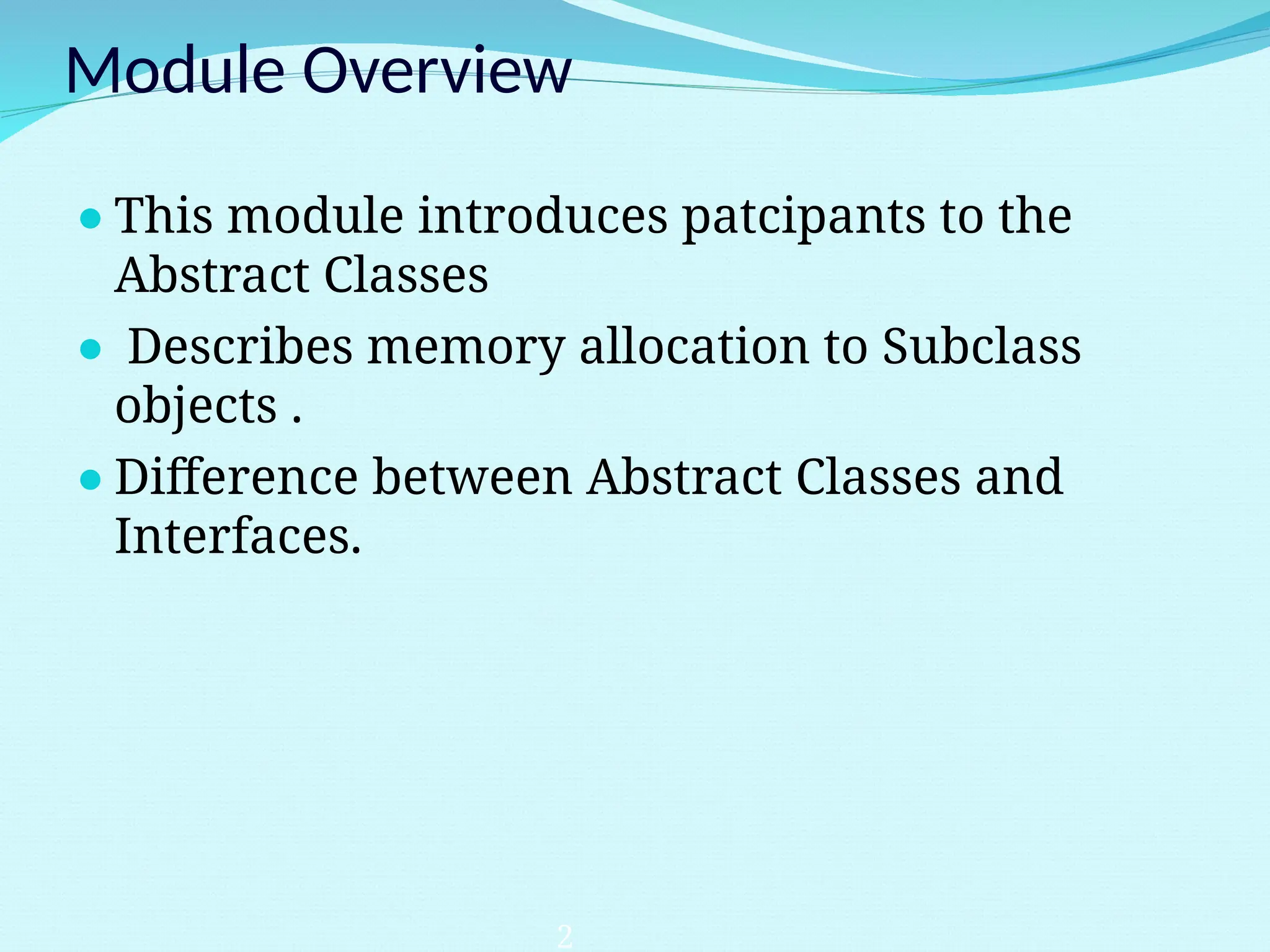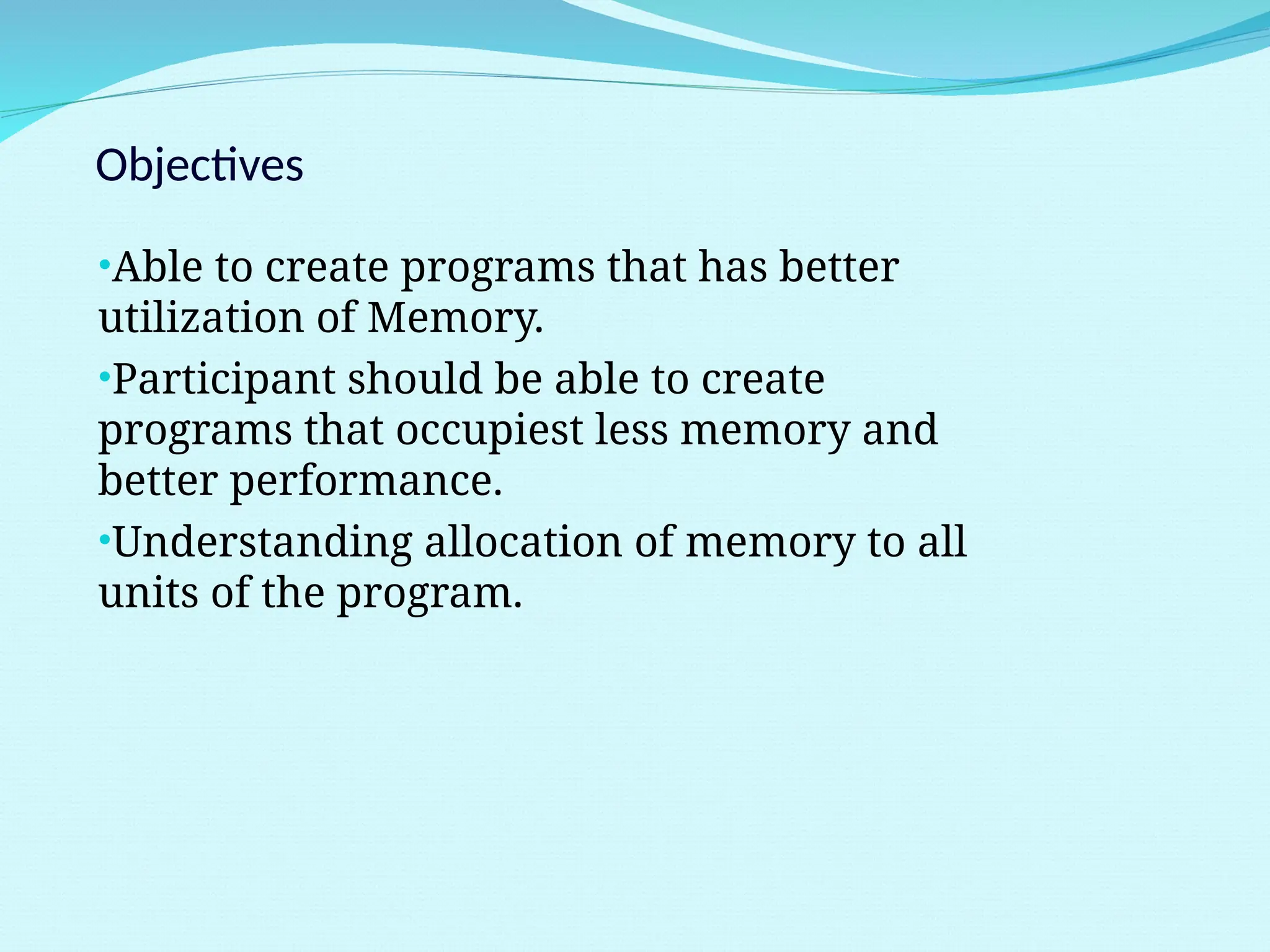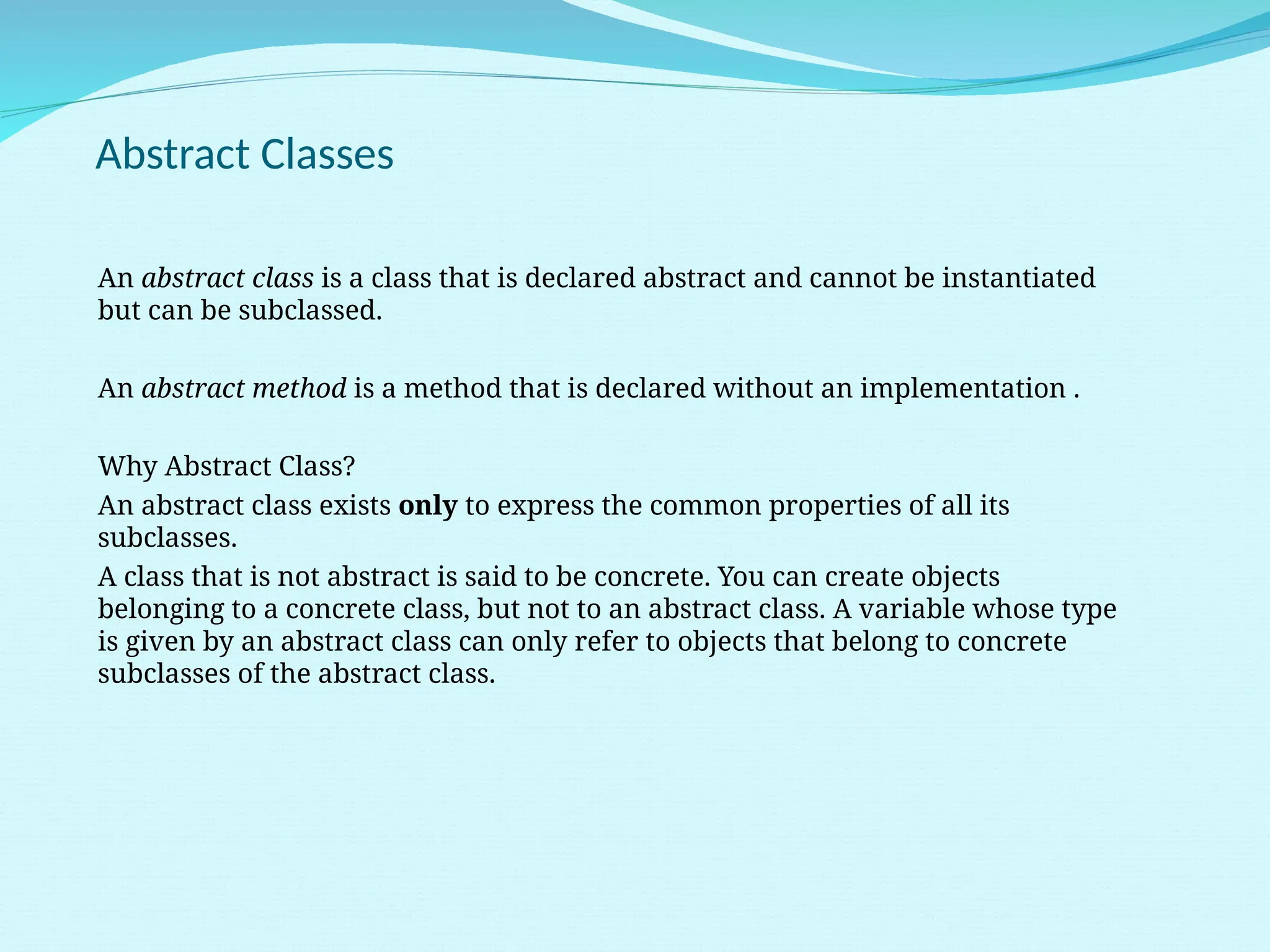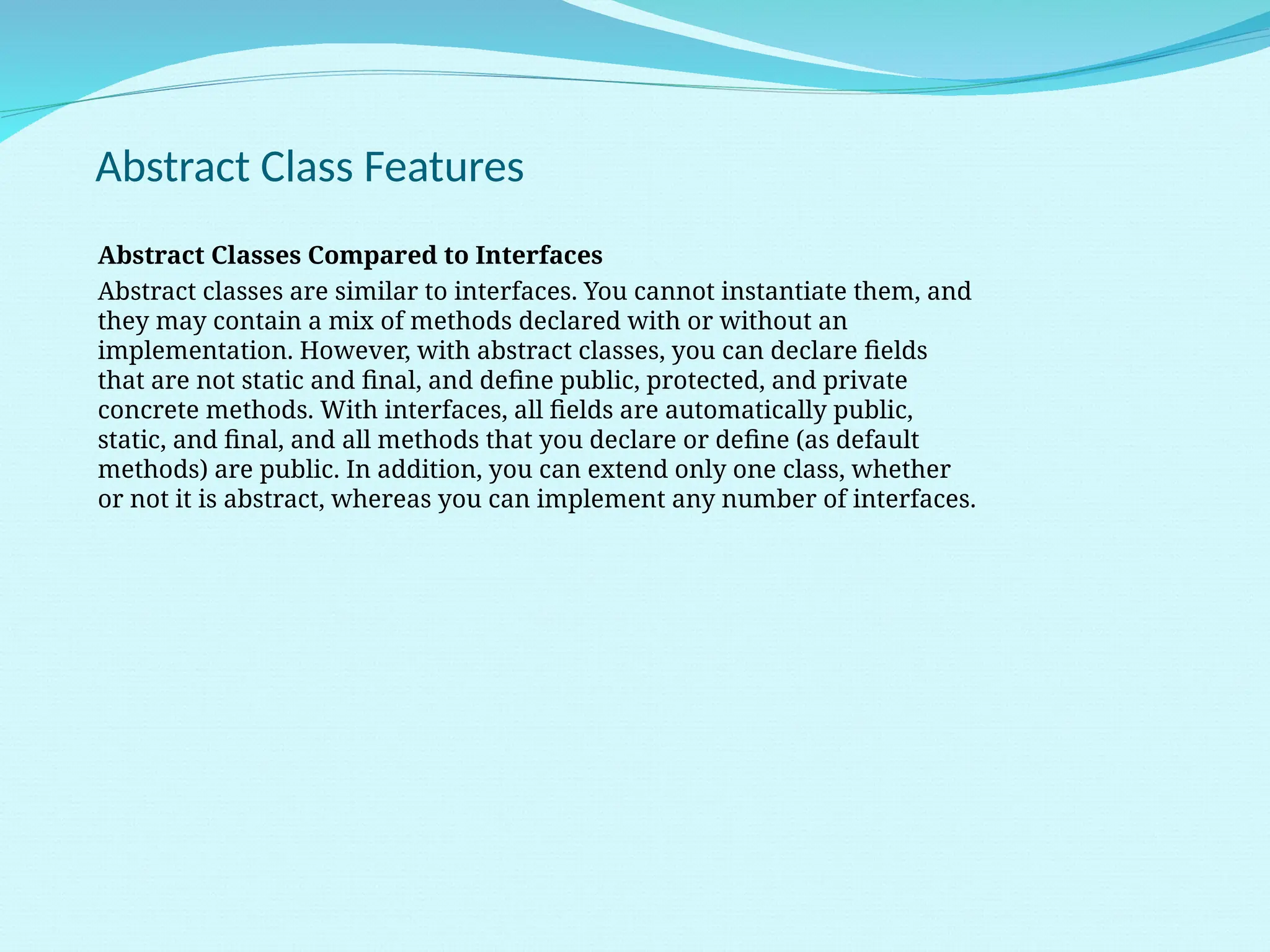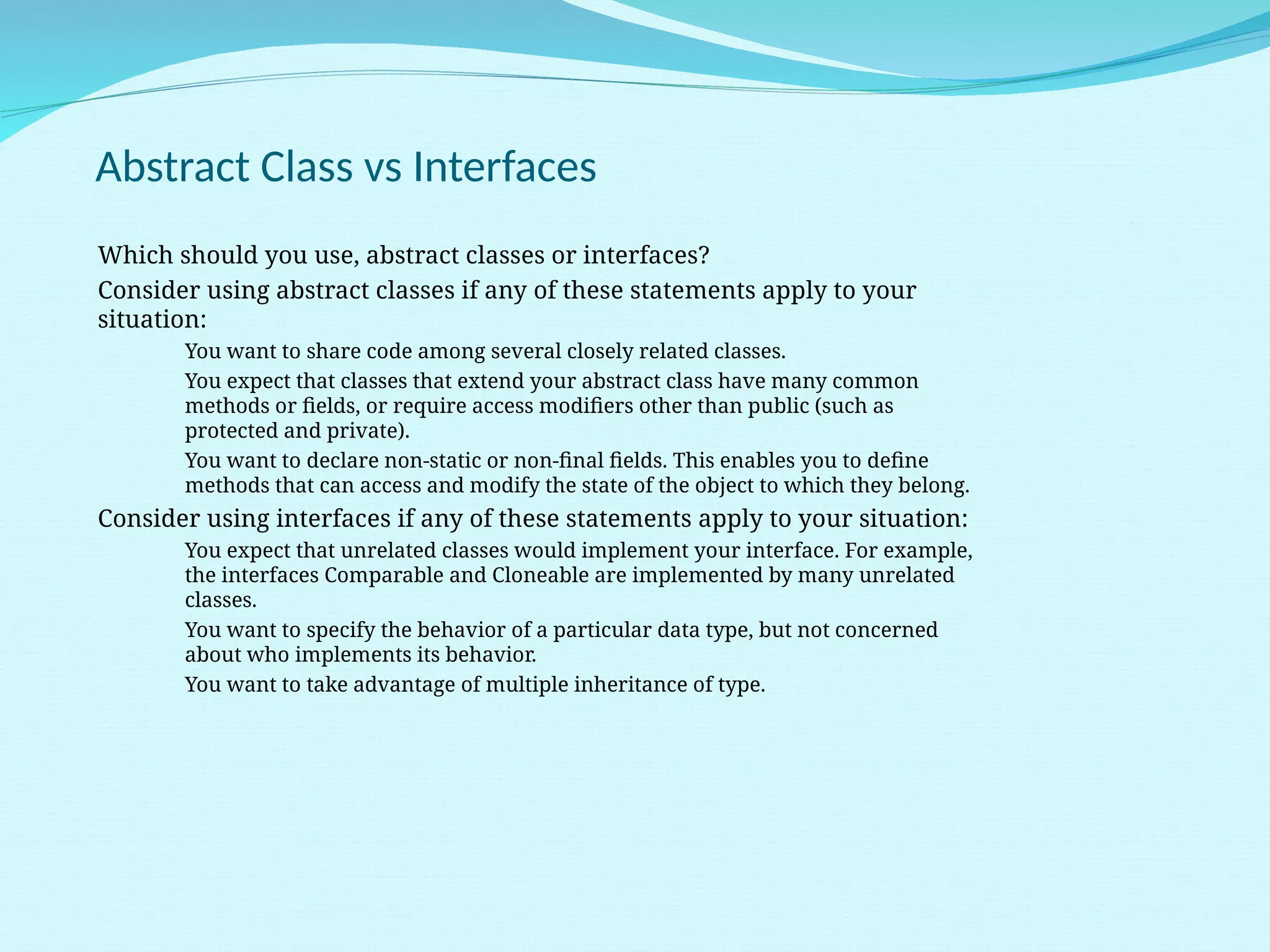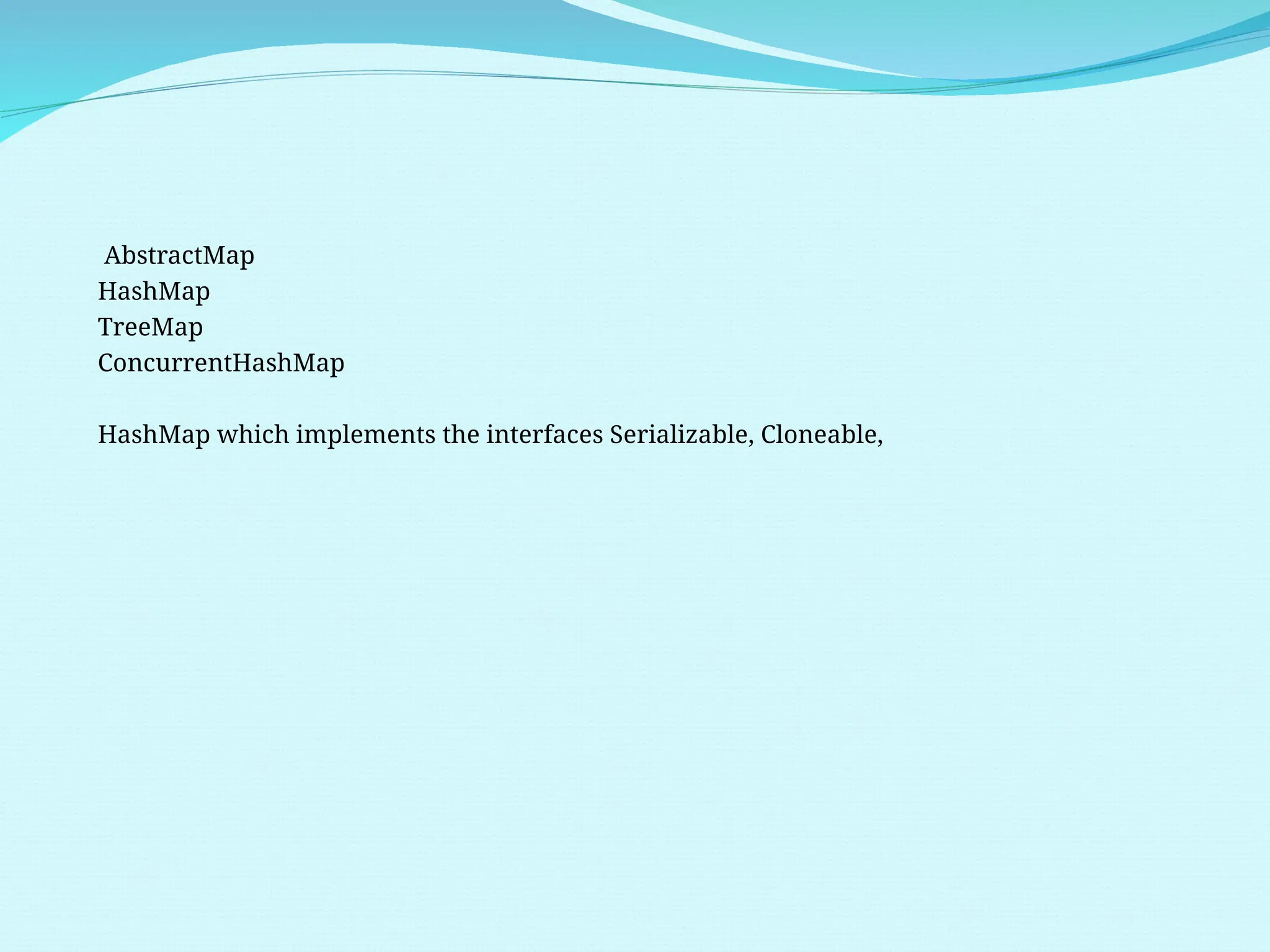This document introduces abstract classes and their significance in programming, highlighting their differences from interfaces. It explains that abstract classes cannot be instantiated but can be subclassed, and they allow for better memory utilization and performance. Additionally, it outlines when to use abstract classes versus interfaces based on specific programming needs.

